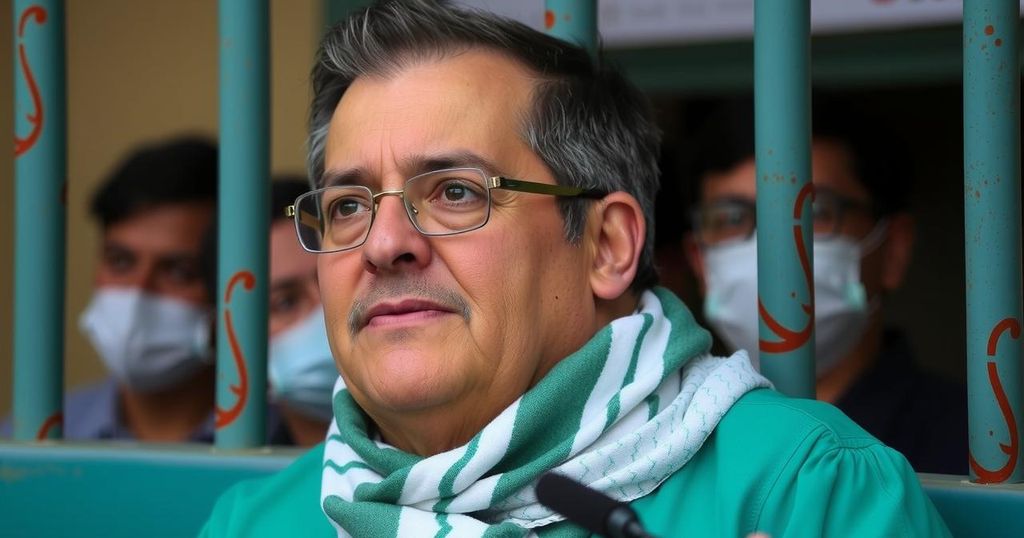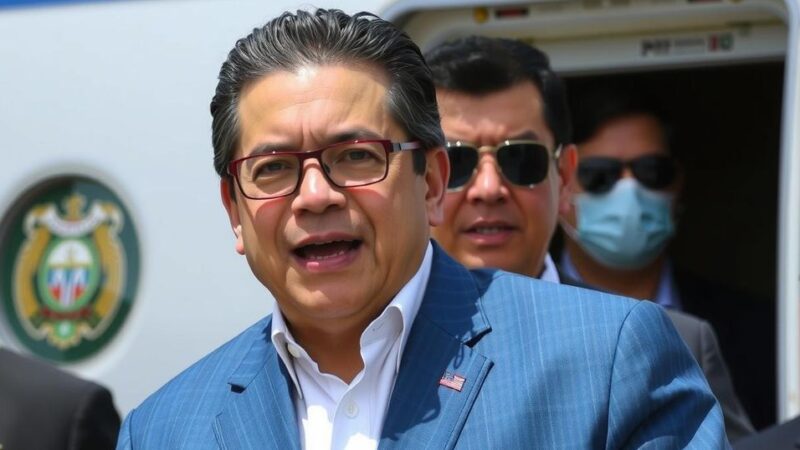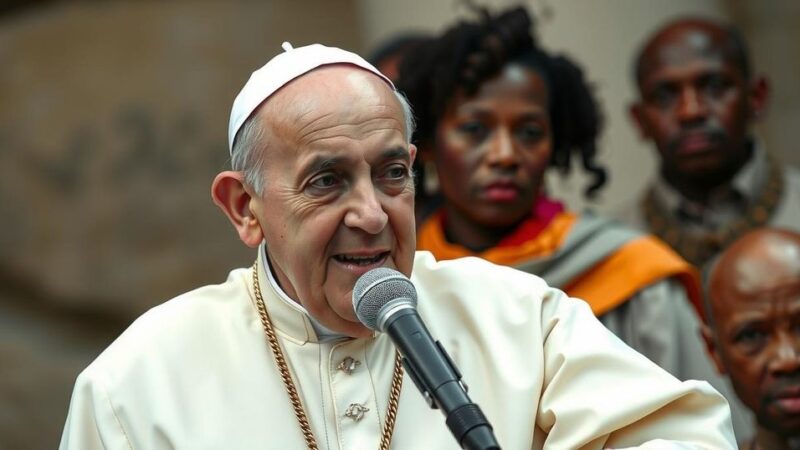Said Ait Mahdi, a Moroccan activist, was sentenced to three months in prison for leading protests against the government’s response to the September 2023 earthquake that devastated the Al Haouz region. Human rights advocates have criticized the charges as politically motivated, and discontent continues to grow among communities affected by the disaster, demanding accountability and support from the authorities.
On Monday, Said Ait Mahdi, a prominent Moroccan activist advocating for victims of a devastating earthquake, was sentenced to three months in prison for leading protests against the government’s response to the disaster. Ait Mahdi, who also faces a financial penalty exceeding $1,000, was found guilty of offenses including defamation, assault, and inciting an unauthorized demonstration. His case has drawn criticism from human rights organizations, who argue that the charges are politically motivated and an attempt to suppress dissent.
The September 2023 earthquake, registering 6.8 in magnitude, resulted in nearly 3,000 fatalities and extensive destruction in the Al Haouz region, prompting public unrest regarding the perceived slow and inadequate government response. Following his arrest, Ait Mahdi became a focal point for activists critiquing recovery efforts, as protests continued amid widespread dissatisfaction over the local authorities’ handling of the crisis. Notably, on that day, three of his fellow activists receiving similar charges were acquitted, highlighting the contentious atmosphere surrounding such cases.
Human rights advocates, including the Moroccan Association for Human Rights, labeled Ait Mahdi’s arrest as arbitrary, linking it to his advocacy work for earthquake victims. The Local Coordination for the Defense of Freedoms criticized the broader context of governmental actions that conceal serious mishandlings during the recovery phase. Across Morocco, particularly in the earthquake-affected areas, calls for justice and accountability have emerged prominently, with some groups gathering in the capital to demand action and voice their grievances regarding the pace of reconstruction efforts.
Moreover, the disaster exacerbated existing inequalities faced by indigenous communities in Morocco. The government has pledged over $11.5 billion for recovery, addressing infrastructure needs and providing support to displaced families. Despite these commitments, many citizens remain skeptical, as demonstrated by ongoing protests calling for more immediate action and transparency in the recovery process.
As a result of these developments, Ait Mahdi has been recognized as an emblem of resistance for affected communities, with strong public support suggesting that his plight resonates greatly with the broader struggle for civil liberties and equitable recovery efforts in Morocco.
The earthquake that struck Morocco in September 2023 caused significant devastation, particularly in the Al Haouz region. With nearly 3,000 lives lost and vast infrastructure damage, including the destruction of thousands of homes and schools, the government’s response came under scrutiny. Activists emerged to voice their frustrations over the perceived inadequacies in recovery efforts, leading to protests and a surge in activism focusing on civil rights and social justice within the context of seismic recovery. Ait Mahdi’s case exemplifies the tensions between civil society and governmental authority in Morocco, particularly in the aftermath of such disasters where local populations demand accountability and support.
In summary, the sentencing of activist Said Ait Mahdi highlights the contentious relationship between Moroccan authorities and civil society, particularly regarding the government’s handling of the recent earthquake disaster. Amidst ongoing protests and accusations of political suppression, this case underscores a broader struggle for rights and justice for the communities affected by the earthquake, with many advocating for increased transparency and responsiveness from the government in its recovery efforts.
Original Source: abcnews.go.com







